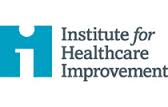Firstly, many thanks to Derek for holding the fort with my blog. His rubbish ending was intriguing, that’s for sure.
For me this was a week of looking to the future and planning for what that brings to us. Whatever happens, there’s no doubt it will be different; so a really important task for all of us is to get our heads out of the sand or out of wishing for the past, and fully embracing our future. It’s easy for us to cling to what we’re used to; our old routines; our old relationships; just are we’re used to.
And often, the just as we’re used to isn’t that great.
The 2020 Vision
 So, with a Board workshop on Tuesday where we were looking to beyond 2020; and the Scottish Executive Nurse Directors discussing how we best organise ourselves to deliver the 2020 vision, and beyond on Friday; my focus has been on what we need to do today to make sure we are prepared for tomorrow.
So, with a Board workshop on Tuesday where we were looking to beyond 2020; and the Scottish Executive Nurse Directors discussing how we best organise ourselves to deliver the 2020 vision, and beyond on Friday; my focus has been on what we need to do today to make sure we are prepared for tomorrow.
The remainder of my week was spent catching up with the team, welcoming the Healthcare Improvement Scotland team who were here to learn about how we are caring for older people; and reviewing nursing numbers to prepare for next year and what we are needing to submit to the NHS Board with regards to additional nursing numbers.
 On Tuesday the HIS team spent the day with us reviewing what we do to care for older people in acute hospitals. They left at the end of the day letting us know they were pleased with the progress we’re making, but what was particularly pleasing was the informal feedback on how impressed the team had been by the commitment and professionalism of our staff.
On Tuesday the HIS team spent the day with us reviewing what we do to care for older people in acute hospitals. They left at the end of the day letting us know they were pleased with the progress we’re making, but what was particularly pleasing was the informal feedback on how impressed the team had been by the commitment and professionalism of our staff.
 And not to be left out, at the other end of the age spectrum, the midwifery service were audited on Wednesday with respect to the standards of midwifery supervision. Again, a glowing report, with the Midwifery Officer who was leading the inspection (on behalf of the NMC) letting us know how impressed she was with our supervisors and what they are doing to protect the safety of women and their babies. Innovation, improvement, and learning from best practice.
And not to be left out, at the other end of the age spectrum, the midwifery service were audited on Wednesday with respect to the standards of midwifery supervision. Again, a glowing report, with the Midwifery Officer who was leading the inspection (on behalf of the NMC) letting us know how impressed she was with our supervisors and what they are doing to protect the safety of women and their babies. Innovation, improvement, and learning from best practice.
There’s no doubt being able to reflect on what we do is crucial if we are to improve our services.
Back to the Future
 So, back to looking at the future. With public sector finances being incredibly tight; public concerns about safety and lack of compassionate care; and the introduction of integration of health and social care; it’s going to require a real focus on what’s important and a relentless pursuit of excellence, if the professions are to continue to meet the needs of our communities.
So, back to looking at the future. With public sector finances being incredibly tight; public concerns about safety and lack of compassionate care; and the introduction of integration of health and social care; it’s going to require a real focus on what’s important and a relentless pursuit of excellence, if the professions are to continue to meet the needs of our communities.
 There’s no doubt that the increased demand for our services is putting pressure on our services that requires a combination of additional resources, and a radical look at the way we deliver care.
There’s no doubt that the increased demand for our services is putting pressure on our services that requires a combination of additional resources, and a radical look at the way we deliver care.
The inquiry into the Vale of Leven will be published on 24th November, so there’s going to be a frenzy of interest in the unnecessary deaths and have we learned the lessons?
And we have to ask ourselves, what steps have we taken to make sure that care is not only good, but excellent? Do we tolerate poor standards?
Why do people not always wash their hands? Why are our infection rates not the best they can be? What is it that stops us from providing excellence in care for every patient every time?
Leadership
Leadership is going to be key- from all of us – keeping the people we care for at the centre of everything we do, and being open to new ideas in the pursuit of excellence. Our Senior Charge Nurses and Team Leaders are crucial to this; often being the lynch pin between the people we care for and the rest of the organisation, so the results of the Stress Survey of ‘Band 7s’ indicating there were additional levels of stress – over and above what could be expected for people in similar jobs, means the planning to support health and well being of all our staff is going to be fundamental to ensuring excellence in care is deliverer.
Holding onto our values
 The future of health and social care in Scotland is going to be different.
The future of health and social care in Scotland is going to be different.
The regulatory framework for nurses and midwives is also going to be different.  So as we hunker down to face a blustery winter, we need to hold on to our values and our aspirations to provide excellence in care for every person every time.
So as we hunker down to face a blustery winter, we need to hold on to our values and our aspirations to provide excellence in care for every person every time.











 The Patient Experience paper highlighted improvements that have been made by staff who listened to feedback from patients and their families; and an update from Billy McClean on the AHP delivery plan highlighted successful changes in care delivery from an OT and physiotherapy perspective; bringing improved outcomes for patients.
The Patient Experience paper highlighted improvements that have been made by staff who listened to feedback from patients and their families; and an update from Billy McClean on the AHP delivery plan highlighted successful changes in care delivery from an OT and physiotherapy perspective; bringing improved outcomes for patients.











































 system. And whilst electronic records have a real benefit, there is no doubt that the next iteration of FACE will be an improvement – so going to the future, it looks like the nursing record will be going back to easier evaluation and record keeping.
system. And whilst electronic records have a real benefit, there is no doubt that the next iteration of FACE will be an improvement – so going to the future, it looks like the nursing record will be going back to easier evaluation and record keeping.
















